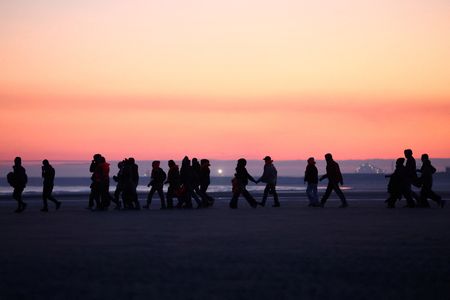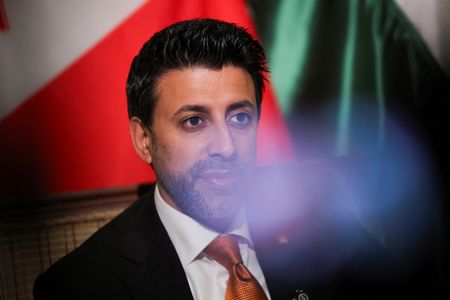(Reuters) -Britain proposed sweeping changes to its policy on asylum seekers on Monday, the latest European country to announce tighter rules on migration in recent years. Here are details on how some other countries are changing their rules:
PUSH FOR REINTERPRETATION OF EUROPEAN CONVENTION ON HUMAN RIGHTS (ECHR)
Nine countries – Italy, Denmark, Austria, Belgium, the Czech Republic, Estonia, Latvia, Lithuania and Poland – called on the European Union in May to make it simpler for member states to expel foreign criminals.
Some European governments have expressed frustration with how the European Court of Human Rights uses the European Convention on Human Rights to block deportations and they want to see it revised.
DENMARK
Denmark, whose model inspired Britain’s overhaul, grants only temporary protection to asylum seekers that is regularly reviewed and can be revoked if conditions in a refugee’s home country are deemed safe. It makes state support conditional on integration and contribution, and has lengthened the path to citizenship.
FRANCE
France’s 2024 immigration bill, the toughest in decades with measures to curb family reunification, narrow access to welfare and tighten birthright citizenship for migrants, was largely gutted in January 2024 by the country’s Constitutional Council, which struck down many of the most restrictive provisions on procedural grounds.
GERMANY
Germany has tightened its asylum rules while still handling some of the EU’s highest application numbers. Laws have sped up procedures, expanding the list of “safe” countries to ease rejections and returns, and simplifying deportations of rejected applicants and some foreign offenders, while in parallel easing access to residence and citizenship for long-term, integrated migrants and skilled workers.
GREECE
Greece temporarily suspended processing asylum applications in July for migrants arriving by sea from North Africa, mainly to Crete, for at least three months and has reinforced border controls with fences and stepped-up sea patrols.
IRELAND
Ireland has introduced legislation to reform its asylum system, aiming to speed up decisions and appeals, and plans further tightening from 2026 under a new migration strategy. The government has also cut the period Ukrainian refugees can stay in state-funded accommodation to 30 days from 90. About 21,600 Ukrainians are currently in state-provided housing.
ITALY
Italy’s right-wing government has tightened migration rules and signed a deal with Albania to transfer migrants intercepted at sea to processing centers outside Italy. The deal has faced legal challenges but is expected to start operating in 2026 alongside the EU’s new migration pact.
Rome has also extended detention for undocumented migrants to 18 months, curbed NGO sea rescue operations and narrowed access to special humanitarian protection. In parallel, it introduced fast-track asylum procedures for people from “safe” countries, aiming to reject claims quickly and step up deportations.
NETHERLANDS
The Dutch parliament is debating a package to tighten asylum rules by making it harder to qualify, cutting residence permits to three years and curbing family reunification. The plan was drafted by the previous right‑wing government before it collapsed in July, with major parties backing tougher controls on asylum inflows.
PORTUGAL
Portugal’s parliament backed a bill in June to double to 10 years the residency period required for most foreigners to apply for citizenship, and to tighten naturalisation conditions. Lawmakers also approved a revised immigration law with stricter family reunification rules. Those changes are not yet in effect pending a review by the Constitutional Court.
SWEDEN
Sweden is sharply increasing cash grants to encourage migrants to return home, with repatriation payments to rise to 350,000 crowns ($36,985) from 10,000, and plans to tighten citizenship rules by adding language and longer residency requirements, while examining whether dual nationals convicted of serious crimes can be stripped of their Swedish passports.
($1 = 9.4634 Swedish crowns)
(Reporting by Reuters bureausCompiled by Dimitri RhodesEditing by Frances Kerry)










